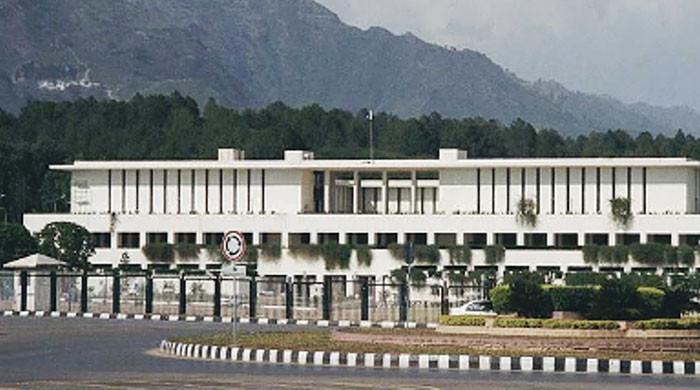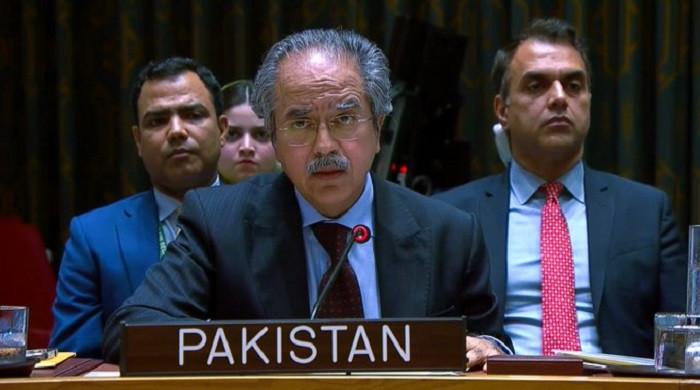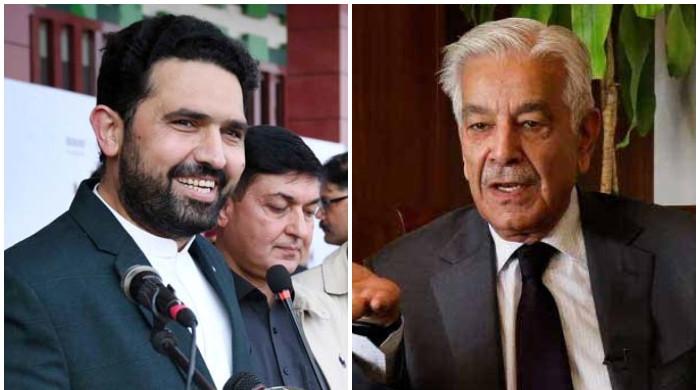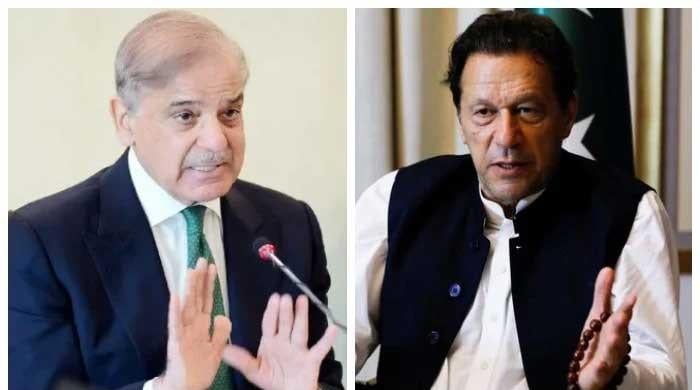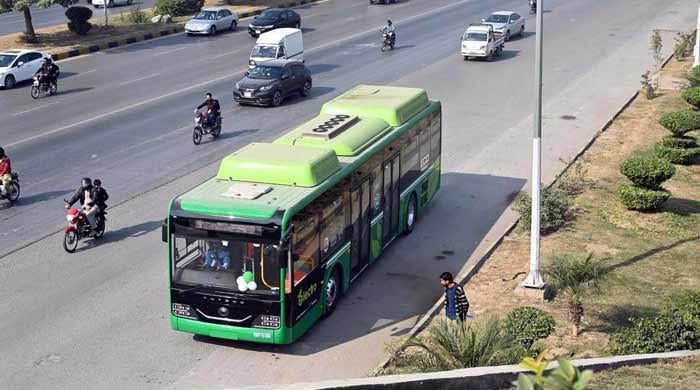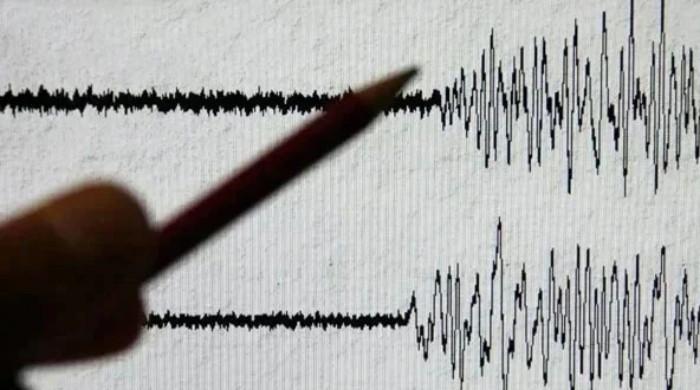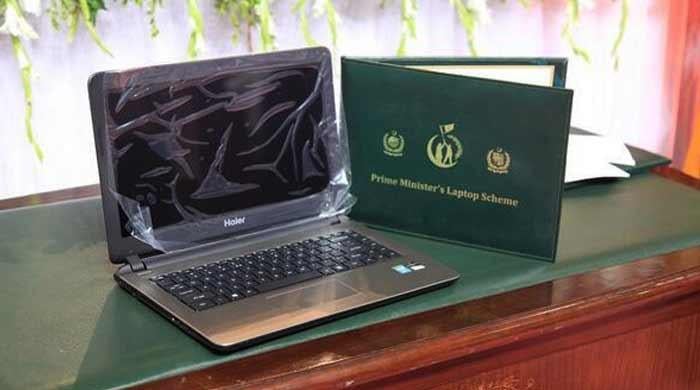Cabinet approves PM Imran's Rs1.2tn relief package for coronavirus crisis
More than 1,800 people have been confirmed to have contracted the virus so far across Pakistan
March 31, 2020
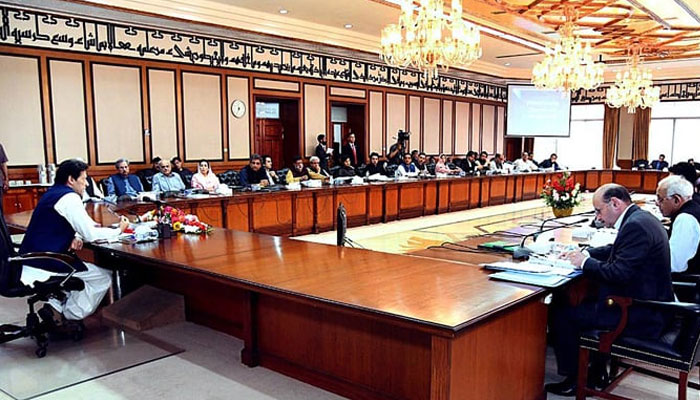
ISLAMABAD: The federal cabinet on Tuesday reviewed and approved a Rs1.2-trillion economic relief package announced by Prime Minister Imran Khan last week as the number of confirmed cases rise exponentially.
Currently, more than 1,800 people have been confirmed to have contracted the virus, while 25 have lost their lives to it, across Pakistan.
During the meeting, which also deliberated upon the government's steps to check the COVID-19 pandemic, PM Imran took notice of the reports claiming that goods of the country's exporters were being stopped. "Exporters' goods, as well as goods' transport, should not be halted," the premier said.
The Cabinet was briefed on the measures being taken to tackle the worsening pandemic.
Sources had earlier said the Power Division was expected to brief the ministers about the circular debt, as well as supply and tariff issues, amidst a country-wide lockdown to contain the spread of the virus.
The meeting was also set to review the epidemic's impacts on the national economy and give final approval to the relief package announced by the premier to mitigate the crisis.
Important to strike a balance between a lockdown and economic activity: Asad Umar
Federal Minister for Planning, Development and Special Initiatives Asad Umar said that it was very important to strike a balance between a lockdown and ensuring that economic activity continued throughout the country on a limited scale.
The minister said that if the country was allowed to operate as it was functioning before the virus, then it will have disastrous economic effects as the number of infected persons will multiply at a fast rate. However, he said that if people were told to stay in their homes and a situation was created where they didn't have access to food, the lockdown would fail.
"This is the balance that we are trying to strike," he said. "The National Coordination Committee and the National Command Centre will keep that balance up and closely monitor the situation."
He said that Prime Minister Imran Khan laid special emphasis on the provision of basic food items to people living in the remote areas of Balochistan and tribal districts.
The minister said that coronavirus patients should not be treated as 'criminals', saying that it was against our morals. "Also, if you keep treating coronavirus patients bad, they will stop reporting their infections," he said. "People should know that if they disclose that they are infected, they will be treated with respect," he added.
Talking about the wheat crisis, he said that Pakistan was an agricultural country and that it was producing food items in ample quantity. He advised against panic buying, saying that ample stocks of food were available in the country.
Umar said that throughout the country, stores and transport services were closed at different times which was creating confusion. He said that PM Imran will chair a meeting of the NCC tomorrow in which all chief ministers will be present. "The government will try to ensure that stores are opened and closed at the same time," he said.
The minister said that Pakistan had enhanced its coronavirus testing capabilities. He said that the number of laboratories across the country where coronavirus testing was taking place had been increased from 13 to 20 and would increase to 32 in the coming days.
Umar said that by tomorrow, Pakistan will have the capability to test 280,000 and after two weeks, more than 900,000 people will be able to get themselves tested for the virus.
Talking about the Personal Protective Equipment, he said that 16,700 PPEs had been provided to healthcare officials by the NDMA. He said that the authority aimed to provide PPEs to all health officials who were at risk of contracting the virus while taking care of coronavirus patients.
Relief package
The Economic Coordination Committee (ECC) had on Monday finalised a Rs1.2-trillion package, including a Rs100-billion supplementary grant, for an Emergency Relief Fund to combat the virus.
Also read: Goods transporters facing hurdles due to lockdown
The ECC had also approved a special package for relief to 12 million poor families through cash assistance under the Ehsaas Programme. Cash grants would be provided under the Kafalat program and emergency cash assistance to the poor on the recommendation of the district administration.
The assistance would be provided for four months as a one-time dispensation.
The cash would be provided either in one Rs12,000 installment through Kafalat partner banks — Bank Alfalah and Habib Bank Limited — after biometric verification or in two installments of Rs6,000 each.
'Coronavirus to be confronted with faith'
Addressing the nation on Monday night, PM Imran had said the coronavirus would be confronted by the force of faith and announced the government's measures to contain the epidemic.
The premier had said China locked down Wuhan to contain the virus.
Read more: Murtaza Wahab disappointed at PM Imran for not addressing PPE, ventilator shortage
"Had Pakistan’s situation been similar to China’s, I would have ordered a lockdown in our cities as well," he said.
The prime minister noted that 25% of Pakistan's population were the poor who could not afford two meals a day. "If the government is unable to look after the unemployed, the lockdown will not be successful," he maintained.
"This disease does not differentiate between the poor and the rich," he remarked, citing the example of British Prime Minister Boris Johnson who had contracted the infection as well.




